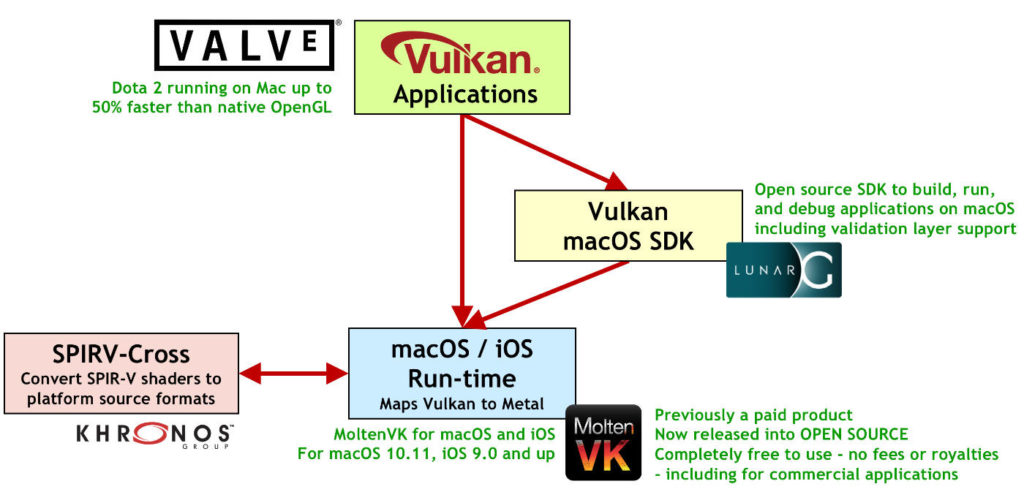Elder Scrolls Online will move to Metal from OpenGL
Apple’s move to deprecate OpenGL in favour of its own powerful Metal technologies caused the usual suspects to say the move would kill gaming on the Mac. They were wrong, at least according to the people behind The Elder Scrolls Online.
Games developers heavy on Metal
Apple prepared for the move to Metal early on – when it did it chose a standards-compliant way to make it a little easier for developers to move to Metal.
That’s when Khronos introduced open-source tools to port Vulkan applications to Apple’s platforms in early 2018. (You can read an interview I conducted at that time with Khronos Group President Neil Trevett).
Trevett told me that this support would let developers “bring their Vulkan-based applications to macOS and iOS with very little or no re-writing of the GPU compute and rendering functionality.”
Higher specs, higher performance
This appears to be the case.The Elder Scrolls Online is about to add Metal support on Mac thanks to Vulkan!
“We have switched the Mac renderer from OpenGL to MoltenVK (Metal) to support the upcoming release of the upcoming MacOS Mojave. To support these changes, we will be updating the minimum specifications for all Mac players in Update 20,” the developers explained (c/o MacGamerHQ).
Apple's announcement that it is deprecating OpenGL doesn't have any impact for WebGL development using Safari. Things underneath might change, but WebGL won't.
— Dean Jackson (@grorgwork) June 5, 2018
(Above: WebGL lead at Apple says there’s no need to worry.)
While no one has seen the release yet, it seems highly probable the game will be faster subsequent to the release, in line with most Metal applications.
Apple has gone on record to explain why it chose to deprecate OpenGL. It points out that the standard:
- Was designed over 25-years ago
- Extensions are retrofitted while the core architecture “reflects the origins of 3D graphics”
- The design choices are based on past principles, but GPU pipelines have changed, multithreading is not considered and asynchronous processing is not core to Open GL.
In other words, Open GL is not fit for a future in which processors shrink, you get multiple processors on one chip, and find that graphics tasks are being handled by a bevy of other on-board microprocessors at times, particularly at peak load.
A Vulcan grip…
I think Apple is saying that OpenGL puts a brake on future evolution in the space. (Which is also interesting in light of the company’s focus on AR).
While PCs moved to use Vulcan, Apple moved to Metal — particularly for it’s a-series processors (I think we’ll eventually see more to the story there).
[amazon_link asins=’B01DE9DY8S’ template=’ProductCarousel’ store=’9to5ma-20′ marketplace=’US’ link_id=’11825ddc-c597-11e8-8f02-d564ecfa0ebe’]
This means that we may see a wave of PC titles shift to the Mac as developers learn how easy (or otherwise) it is to make the port. After all, Metal is already supported by popular third-party engines such as Unity, Unreal, and Lumberyard, plus Apple’s own high-level frameworks SpriteKit, SceneKit, and Core Image.
Existing titles can still use the current form of OpenGL, which feels a little like a two-year warning that support for the veteran standard will go (though it could remain much longer than that).
What we can’t say for sure (yet) is if the Elder Scrolls decision to move to Metal will turn out to be an exception, or the beginning of a flood.





